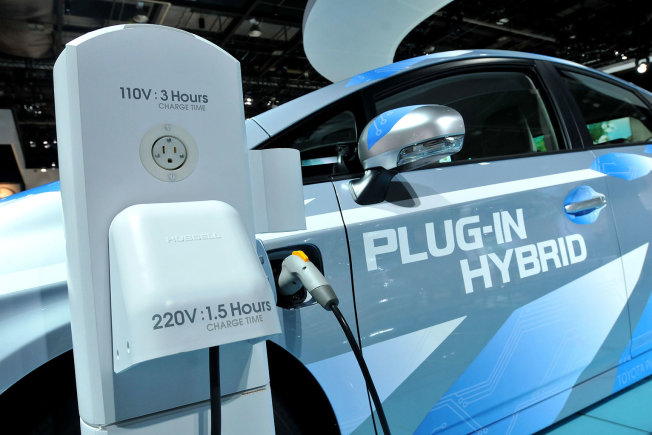Thursday, 05/02/2026 | 12:04 GMT+7
With no end in sight to bargain-basement fuel, sales of electric and hybrid vehicles have stalled.

Sales of electric and hybrid cars like the Toyota Prius, Nissan Leaf and Chevy Volt are sliding in the face of sustained and record-low oil prices, a senior Energy Department official and General Motors executive acknowledged Tuesday, undercutting automakers' costly efforts to introduce vehicles that, less than two years ago, were expected to be heavily in demand amid expensive gasoline and increased concern about global warming.
While oil prices flashing across traders’ terminals are at the lowest in a decade, in real terms the collapse is even deeper.
West Texas Intermediate futures, the U.S. benchmark, sank below $30 a barrel on Tuesday for the first time since 2003. Actual barrels of Saudi Arabian crude shipped to Asia are even cheaper, at $26 -- the lowest since early 2002.
With the average price at the pump now flirting with $2 a gallon, sales of electric and hybrid vehicles have stalled. After a peak of more than 592,000 vehicles sold in 2013 – making up nearly 4 percent of the total market – the number fell slightly to about 570,500 last year and could drop below 500,000 this year, according to the Electric Drive Transportation Association.
There are other factors. Fast-charging stations, for example – needed not merely to rapidly fuel vehicles, but reassure potential buyers their cars won't run out of juice mid-drive – are expensive to build and costly to maintain, and simply making drivers pay for the electricity they use isn't enough to recoup the cost.
Yet without utilities on board, sales could stay stagnant.
"The plug-in electric vehicle market is not going to escape niche where we are today unless 3,200 utilities step up and take some actions," said Britta Gross, director of General Motors advanced vehicle commercialization policy.
Hoa Nguyen (via US News)








 Energy Efficiency and Conservation: Technology as the “Key”
Energy Efficiency and Conservation: Technology as the “Key”
 Energy-saving solutions and green transition promotion
Energy-saving solutions and green transition promotion
 Opening of the 2025 Energy-Efficient Equipment and Green Transition Exhibition Fair
Opening of the 2025 Energy-Efficient Equipment and Green Transition Exhibition Fair
 Consultation on the methodology for developing and updating energy consumption standards for four major industrial sectors
Consultation on the methodology for developing and updating energy consumption standards for four major industrial sectors
 Develop sales and marketing strategies for energy efficiency equipment and solution suppliers
Develop sales and marketing strategies for energy efficiency equipment and solution suppliers
 The 9th VEPG Steering Committee Meeting: Strengthening Coordination for Viet Nam’s Just Energy Transition
The 9th VEPG Steering Committee Meeting: Strengthening Coordination for Viet Nam’s Just Energy Transition